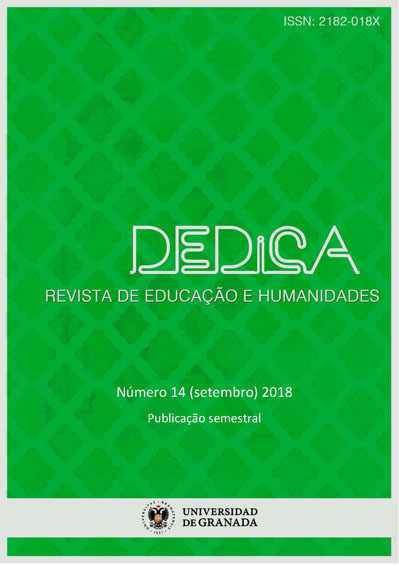Educational and social inclusion from music and the word
DOI:
https://doi.org/10.30827/dreh.v0i14.7477Keywords:
education, exclusion, music, learningAbstract
The educational and social inclusion of music and speech is aimed, on the one hand, at improving the most disadvantaged people, facilitating integration in their environment and in difficult contexts, and on the other hand, creating a training program in order to That students of primary level could contribute, from their experience and knowledge acquired in their training, a complementary practical application to students of similar characteristics and in environments of difficulty. This proposal is an initiative to be carried out in future cooperation projects and is based on the hypothesis that education can influence factors of resilience and social inclusion, using music and word as the backbone to avoid social and educational exclusion in adults. This project is part of the 10th Call for aid for research and training projects of the Permanent Observatory of Immigration (OPI-UJI).
Downloads
References
Arjona, A.; Checa, J. C. (1998). Las historias de vida como método de acercamiento a la realidad social. Gazeta de Antropología,14, artículo 10. Recuperado de: http://www.ugr.es/~pwlac/G14_10JuanCarlos_Checa-Angeles_Arjona.html
Bauer, L.; Kaprova, Z.; Michaelidou, M. & Pluhar, C. (s/d). Principios fundamentales para la promoción de la calidad de la educación inclusiva. Recomendaciones a responsables políticos. Agencia Europea para el Desarrollo de la Educación del Alumnado con Necesidades Educativas Especiales. Recuperado de: http://www.european-agency.org/publications/ereports/key-principles-for-promoting-quality-in-inclusive-education/key-principles-for-promoting-quality-in-inclusive-education.
Bretones, E.; Solé, J.; Alberich, N. & Ros, P. (2014). Historias de vida y educación social: una experiencia de investigación y formación. Tendencias Pedagógicas, 24. Universidad Autónoma de Madrid. Recuperado de: https://revistas.uam.es/tendenciaspedagogicas/article/viewFile/2093/2191
Ferrarotti, F. (2007). Las historias de vida como método de Convergencia. Revista de Ciencias Sociales, 14(44), mayo-agosto, 15-40. Universidad Autónoma del Estado de México. Toluca, México. Recuperado de: http://www.redalyc.org/pdf/105/10504402.pdf
Glaser, R. (1991). The Maturing of the relationship between the science of learning and cognition and educational practice. Learning and Instruction,1, 129-144.
Jiménez, M.; Luengo, J. & Tabernero, J. (2009). Exclusión social y exclusión educativa como fracasos. Conceptos y líneas para su comprensión e investigación. Profesorado. Revista de Currículum y Formación del Profesorado, 13(3), 11-49. Recuperado de: http://www.ugr.es/~recfpro/rev133ART1.pdf
Merriam, S. (2004). The Changing Landscape of Adult Learning Theory. Review of Adult Learning and Literacy, 4(6), 221-236.
Soto, R. (2003). La Inclusión Educativa: Una Tarea Que Le Compete A Toda Una Sociedad. Actualidades Investigativas en Educación, 3(1), 1-16.
Tezanos, J. F. (2001). La sociedad dividida. Estructuras de clase y desigualdades en las sociedades tecnológicas. Madrid: Biblioteca Nueva.
UNESCO (2009). La educación inclusiva: el camino hacia el futuro. Oficina Internacional de Educación. Ginebra.
Vernia, A. M. (2016). “Exclusión educativa en el ámbito de la educación musical. Propuesta de inclusión en personas adultas”, en Actas VIII Congreso Internacional de Filosofía de la Educación. 21 a 23 de septiembre. Universidad Católica de Valencia. Valencia.












